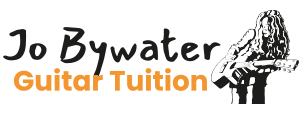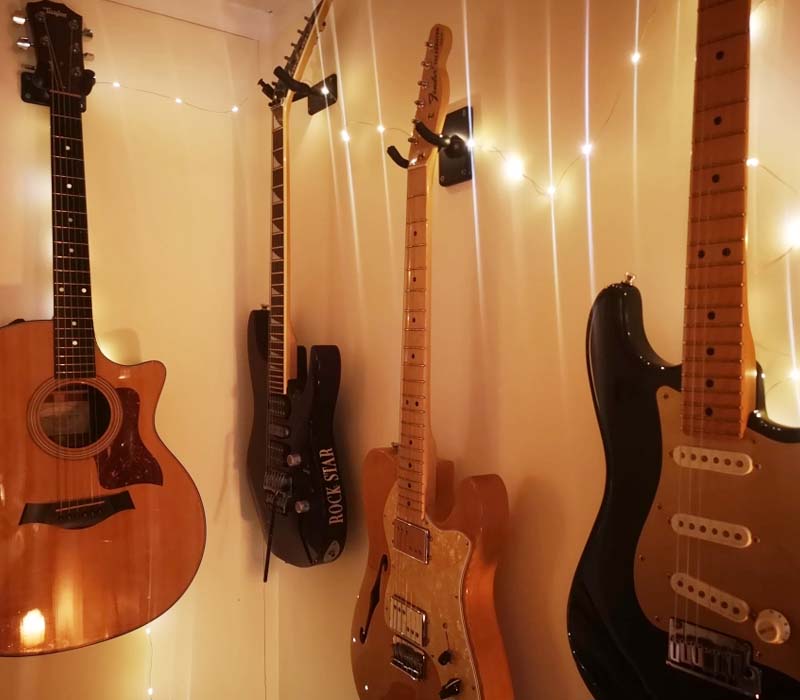So, why do you want to learn guitar?…
As somebody who is being paid to teach I like to understand peoples hopes, motivations and goals when they get in touch about lessons. It’s important to me that I’m giving something of value and can help people on their journey. Get some focus and tune in (…oh dear..). To do that I have to find out what they’re really hoping for.
‘I just want to learn to play guitar‘ is the simple answer. It’s a good starting point for more questions. There are so many ways you can learn to play guitar (acoustic / electric / accompaniment / grades / improvising / songwriting… just a small selection) that getting a little bit of direction is priceless. There are other things you can figure out along the way and people’s goals can change once they get going. That can all be facilitated. Here we go….
6 Questions:
1. Are you a beginner?
I’ve had people with a range of abilities calling themselves a beginner but where this question is effective is that it let’s me know how someone sees themselves. Whether they’ve had experience or had another teacher. If they’ve taught themselves online or had lessons 10 years ago. ‘Beginner’ is a label that means different things to different people so it’s having the ability to read between the lines with this questions that helps. It’s mostly to get people talking about themselves.
2. What is it that makes you want to learn to play guitar? Why do you like the guitar?
This really helps me to see how someone views the guitar. It helps me a lot in knowing how someone will practise or what they expect and how to direct lessons in a way that will keep them engaged.
Some answers I’ve had:
Dunno, just wanted to.
I’ve had a guitar gathering dust in my house for 1yr,10yrs, 20yrs, 30yrs and I’ve wanted to play since I was 16.
I just got divorced.
My dad was a guitarist and I inherited his guitars when he died.
I love music.
I want to play in church.
I want to be a rockstar.
I just want to play quietly for myself.
I want to be able to accompany myself when I sing.
3. Do you, or have you played any other instruments?
If someone has played other instruments it often means they have a foundation of musical language (to varying degrees). Rhythm, chords, melody, time signatures etc are familiar concepts. It often means their sense of rhythm and timing is decent and they have a more tuned in ear. I’ll reserve deciding what level this is at until I have chance to hear them play or jam with them. How someone talks about this also sheds light on whether they were (or are) excited or having fun and maybe things that didn’t work. This helps direct lessons I plan with them and how I approach teaching them.
4. Do you have any goals? Are there certain songs you want to learn? (even if you think they might be too difficult…), artists you like? Songs you like?
Something to aim for. It can be loose but there’s something that plants the desire to learn guitar into every body’s mind… I always try to get a list from people so I can see which songs would be suitable at their level to learn. It gives me an idea of genres to choose and whether it’s lead or rhythm guitar that excites them. It also gives me ideas on what technique practises to implement. It can give me an idea in some cases of a time-frame people have in mind eg I have been teaching a lady who wanted to perform at her birthday party that was in 6 months. Perfect.
5. What do you hope to gain from one to one lessons?
This is about managing people’s expectations. There are loads of online free resources so what is it they’re are prepared to pay for and how can I make sure that happens effectively? Most of the time it’s about me taking time to listen and then construct something bespoke for the lessons. Giving real time feedback and setting practise goals is important for progress. These are things you don’t get from lesson videos or group lessons in many cases.
6. What music do you like listening to?
This can make people go quiet or spark off some really interesting, fun and varied conversations. What music people listen to is quite a personal thing. We listen to music for different reasons and moods: to relax, to workout, a celebration playlist, dance, ambience. The list goes on. If I get into a good conversation about music with someone wanting to learn guitar it sparks of a list of song ideas. Things they’ll enjoy learning. What it is they love about music.
Additionally, I like to know whether they’ve had other teachers in the past and what their experience was. Often people have had negative experiences so I like to know what didn’t work for them last time and see if I can help avoid that in our lessons. A lot of the time it’s that previous teachers didn’t listen and/or weren’t reliable (frequent last minute cancellations, changing lessons times).
My conclusion:
As a teacher. Listen. Ask questions and listen to the answers. I take the answers and mash them up with my knowledge to prepare something relevant to each person. Not everybody has an answer or even knows why but usually it will become clear over time.
After that… its PRACTISE TIME!
As a student you’ve then just REALLY got to practise.
Remember to have fun. See you next time.
Jo x


0 Comments